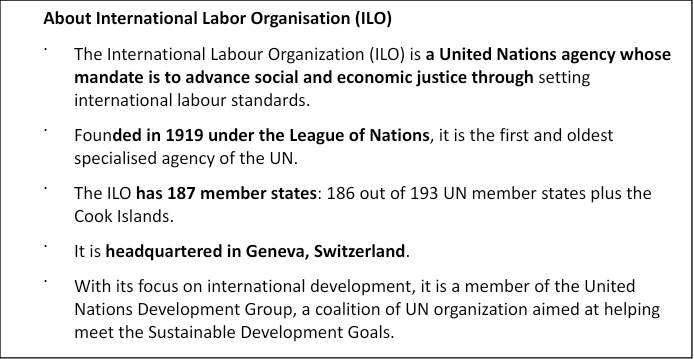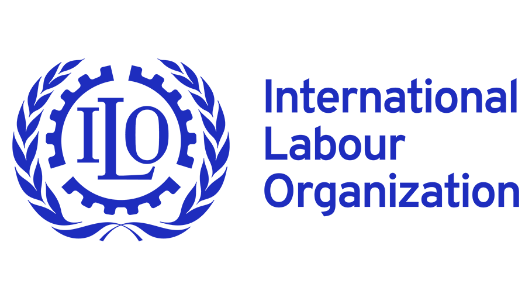World Employment and Social Outlook Trends
Figure 3: No Copyright Infringement Intended
Context:
- Recently, the International Labour Organisation (ILO) released a report titled World Employment and Social Outlook - Trends (WESO Trends) 2022.
Findings of the Report
Unemployment:
- Global employment is estimated to be at 207 million in 2022 compared to 186 million in 2019.
Global Working Hours:
- In 2022, working hour loss is equivalent to the loss of 52 million fulltime jobs.
Global Labour Force Participation:
- Around 40 million people will no longer be participating in the global labour force in 2022.
Regional differences:
- The impact was particularly severe for developing countries, which had already experienced higher levels of inequality, more diverse working conditions and weaker social protection systems prior to the pandemic.
- Many low- and middle-income countries have little access to vaccines and have limited room to increase government budgets to deal with the crisis.
Significantly different effects:
- The report warns that there are wide disparities in the impact of the crisis on workers and various groups of countries-while deepening inequality within and between nations, almost regardless of the level of development.
- It weakens the economic, financial and social structure of all states.
- Damage can take years to repair and can have long-term implications for the workforce, household income, social and, in some cases, political cohesion.

Various sectors:
- Some sectors, such as travel and tourism, were hit particularly hard, while others, such as information technology, thrived.
Impact on women and the young population:
- Women have been hit harder than men by the labor market crisis, and this may continue.
- The closure of education and training institutions has long-term implications for young people, especially those who do not have access to the Internet.
Expected recovery:
- Sustainable recovery is possible, but it must be based on decent work principles that include health and security, fairness, social protection and social dialogue.
- Forecasting new labor markets can be important for policymaking in countries like India, where most jobs are informal, to prevent further unemployment and shorter working hours.




1.png)
